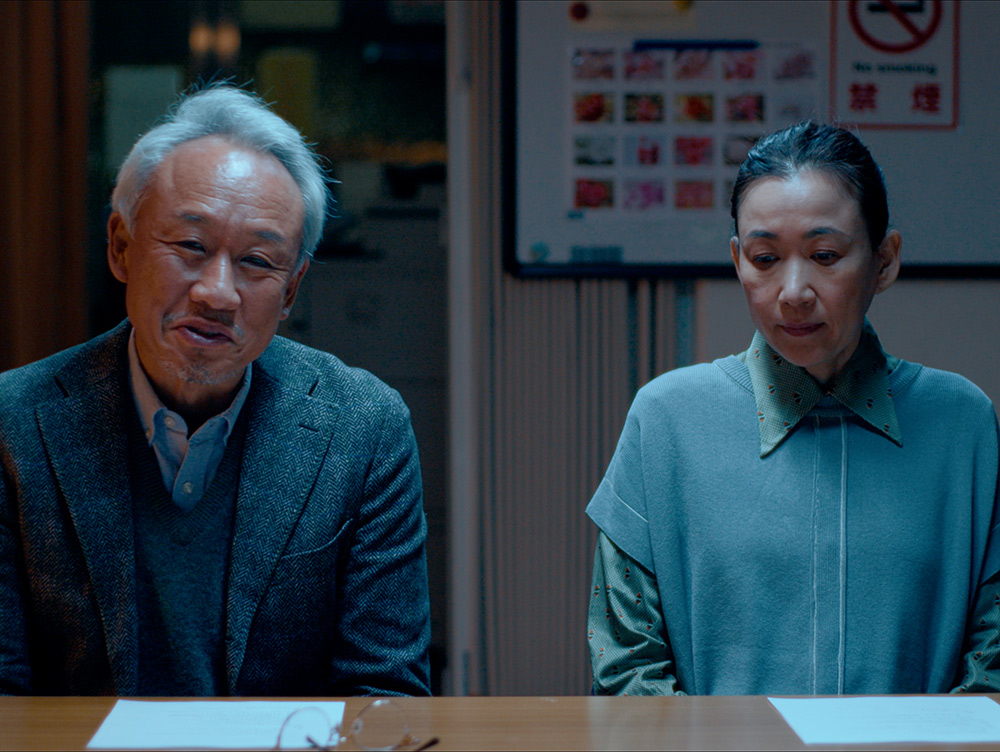!["[Window] MADO" Director Asao Drawing creates a sense of self [Director's Interview Vol.272]](https://cinemore.jp/images/73a9d7debd780f92fd7844be4512f3d3f4d3121b5cd1d14be48af4454c75184d.jpg)
"[Window] MADO" Director Asao Drawing creates a sense of self [Director's Interview Vol.272]
Family A and family B live in a suburban housing complex. One day, Family A begins a lawsuit against Family B, demanding 45 million yen in damages, alleging that they developed ``chemical sensitivity'' due to cigarette smoke from Family B, who lives downstairs. This actual trial, known as the ``Yokohama Second-hand Smoke Trial,'' eventually came to be socially discussed as a major issue in tobacco trials in Japan. The movie ``[Window] MADO'' is a fiction film based on fact that was inspired by the ``four-year diary written by husband A of family A'', which was submitted publicly as court documents during the process. It is.
The director is Maou. This is his debut feature film, and although he is the son of the B family, he tries to look at the relationship between the two from a flat perspective. Plaintiff family "A family" and defendant "B family". Through the stories of each family, the film depicts the various problems and divisions caused by chemical sensitivities.
Although the director himself is the son of the family involved, he has created a fictional film based on an incident that actually happened to his own family. We spoke to director Asao who took on this bold new endeavor.
Index
- The trigger was the A family's diary.
- Drawing also creates a sense of self.
- Edited over a year
- From both Japanese and overseas perspectives
The trigger was the A family's diary.
Q: The film is based on an actual incident that happened to the director's family. What was the reaction from the people involved, including his family?
Mao: My family told me to do whatever I wanted (laughs). It all started when I read a diary written by the father of Family A. The diary, which was submitted as a court document, was a record spanning four years, and although it was written in a quiet and quiet style, it contained a tremendous variety of emotions. The moment I finished reading it, I knew I wanted to turn it into a drama. Normally it would have been a documentary, but I didn't have the time to stick around and film it all the time. But I think it might be possible to dramatize this diary and make it into a movie. Moreover, rather than depicting my family, I wanted to make a drama centered around the father of Family A.
Q: Has the actual trial ended?
Mao: This trial itself is over. The appeal hearing ended two years ago, and Family B won. My family is currently filing a counterclaim against the doctor who wrote the medical certificate without diagnosing my condition.

“[Window] MADO” ©2022 towaie LLC
Q: I was surprised to hear that the shooting was done at the housing complex where the people involved actually live.
Maou: Basically, everything was shot on location, and the scenes of the B family were actually shot at my parents' house. Family A rented another house in the same housing complex to photograph.
Q: I heard that you haven't told your partner's A family about this movie. Does that mean it's just fiction based on fact?
Mao: That's right. Since it's fiction based on fact, it naturally contains cinematic expressions, but what I wanted to do was to use that diary as a subject and draw what I could get from it. First of all, I tried to be faithful to this diary. However, rather than portraying the facts as a dramatization, I aimed to capture all the thoughts and emotions written in the diary and portray them.

